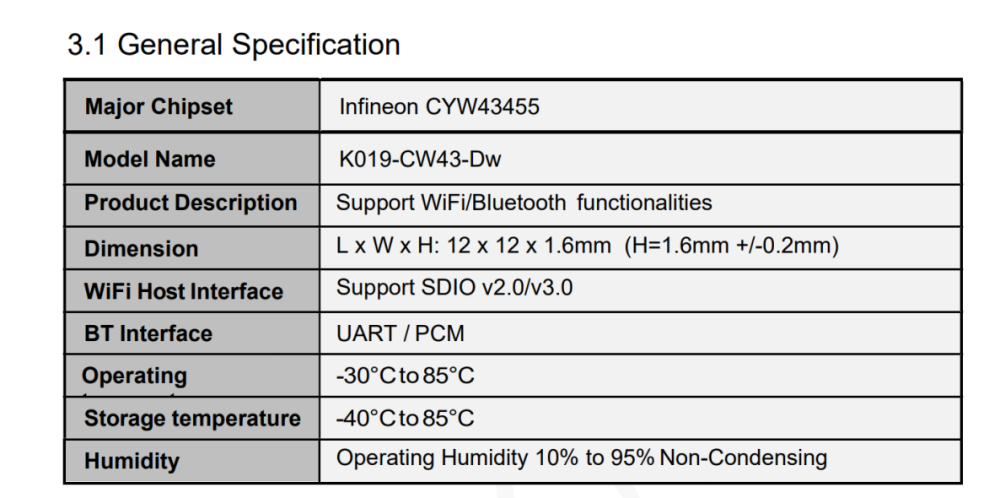-
Posts
215 -
Joined
Content Type
Forums
Store
Crowdfunding
Applications
Events
Raffles
Community Map
Posts posted by c0rnelius
-
-
The current github drivers for this dongle are a mess.
Hopefully by the next LTS this will have been merged; https://lore.kernel.org/linux-wireless/435af284-0794-48e0-81a5-5a88b3c454bf@gmail.com/T/#t
For the time being use: https://github.com/lwfinger/rtw88
If needed and isn't installed already the latest firmware can be found here; https://github.com/armbian/firmware/tree/master/rtw88
-
Read the post and check the PR link
and or follow the fellas post below.
The IMGs need to be updated, so currently that's the only remedy as far as I know.
-
Normally out of the gate Samba doesn't just work. You need to setup up the /etc/samba/smb.conf file and add a user to it.
sudo smbpasswd -a yourusername
Here is an example conf file
EDIT:
That smb.conf file I pulled off a NAS I have running on a bullseye install, on my newer ones I set both client and server to NT1.
client min protocol = NT1 server min protocol = NT1I can't recall the reasons why now, but pretty sure it had something to do with functionality. You can google the client and server options and set it to whatever best suits ur needs.
-
Scroll to the bottom of the page and try a rolling release IMG. https://www.armbian.com/bananapi-m4-zero/
We are in the middle of sorting out the BT, but WiFi should work VIA overlay.
My notes are here; https://github.com/armbian/build/pull/7332
-
Try this pre-compiled binary. I'm gonna need to re-write some of that patch to work with armbian.
-
-
I would think it just being there is good enough.
-
I'm told the bluetooth doesn't work, which is why I haven't submitted it. The patch was also done quick and dirty and I'm sure needs some clean up.
0001-arch-arm64-dts-allwinner-sun50i-h618-bananapi-m4-zero-v2.patch
-
-
32 minutes ago, vimal said:
May I trouble you to try 200MHz with 200ms post-power-on-delay and see if that helps your instability issue?
I have tried it "post-power-on-delay". With and without it, I didn't see any difference. So I opted to just remove it. If for sure its needed on ur end, I can add it back in. My current theory is that it was caused by the increase in the freq.
As for diff revs of the unit? I'm not sure.
The current unit I am using to run the wifi tests on is attached to a Waveshare CM4-IO-BASE-B. As that's the only one I could easily attach an antenna to. I wouldn't think the baseboard would create any wifi hiccups though?
The one interesting thing I did notice; is wifi was faster when running from SDCARD. One of my units run via NVMe and the other from SATA. Maybe the extra power draw when running from NVMe is effecting the wifi?
-
When did you purchase the unit? The new BPI-M4-ZERO has SDIO WiFi and uses BRCM. The older units have WiFi over USB and use REALTEK.
Unfortunately I don't have the newer unit.
-
8 minutes ago, vimal said:
I noticed in your newer patch that you also dropped the post-power-on-delay-ms - are you certain that is unnecessary?
Adding it doesn't seem to bring anything to the table.
After messing around with it further the key changes / additions appear to be:
max-frequency = <100000000>;
vqmmc-supply = <&vddao_1v8>;
/delete-property/ amlogic,dram-access-quirk;
20 minutes ago, vimal said:What were you doing to trigger instability in rtw88? I'd like to try and replicate that.
Booting the board. I suspect it's the freq being at 200000000, as I haven't seen it happen since I lowered it.
As for adding an overlay to change the max freq, sure I can do that when i submit the final patch.
-
This patch seems to be more stable when using rtw88. I removed a few bits that shouldn't be required and dropped the freq down a bit.
-
Sweet. Let me know in a few days and if it's a go I'll do a PR.
-
-
20 minutes ago, vimal said:
I'm not sure if this is a helpful finding or not - for now this is good enough for me since I get to use the latest kernel + image and still get good wifi speeds. Any ideas on what motivated changes to the mmc configuration between the 6.0 image and newer images?
I can't say for sure; but my guess is that the dts being used was based on this https://github.com/armbian/build/blob/v23.02/patch/kernel/archive/meson64-6.1/add-board-bananapi-m2s-initial-support.patch
There was no official CM4 DTS in mainline on 6.0.y and the two boards have a lot in common. I've messed around with &sd_emmc_a node, but I'm personally not seeing any improvements.
-
Sorry. Both of my CM4's have a heatsink+fan combo on them, making it pretty tough to attach the antennas without removing the setup. I use them both wired.
I do have other units with the same SDIO and yes, they all get the same speeds using rtw88. It has been a complaint since day one as far as I know. This was the last discussion we had about the driver: https://github.com/armbian/build/pull/6703#issuecomment-2154619094 which goes into other problems.
One option would be; figure out why the github driver doesn't work on the unit and do a PR on the repo. https://github.com/jethome-ru/rtl88x2cs
-
The build comes with both rtw88 and the github variant. rtw88 gets loaded first "it has priority", so blacklist rtw88 and see if you get better performance.
I seriously doubt it's the DTS. But ur more than welcome to go that route. If you find edits to the DTS are beneficial in this department please let us know.
EDIT: I just remembered something. During the bring up process, I found the github variant didn't work on this unit. This was the main motivation for backporting rtw88 into Armbian when it was still on 6.1.y.
-
1 hour ago, vimal said:
And turns out WiFi works a lot better when you add antennas....
This is the important part here. Use an antenna.
What that ancient kernel is running is an old github driver.
-
Well you are more than welcome to use what you want from the patches for S905X3. I've only run tests on the ones I have of course, but the SPDIF and ANALOG are identical on both. I suspect they are probs generally the same on most of those BOXES.
-
Nah. I haven't submitted them. I've considered doing a PR to Armbian, but just never did as I'm honestly not sure what the state of things are on the Armbian front when it comes to TVBOXES.
-
This can be done on S905X3 boxes "tested on the X96AIR-GBIT and H96MAX", but it would require patching the DTS files and applying the correct mixer settings.
amixer -c 0 set 'TOHDMITX' 'on' amixer -c 0 set 'TOHDMITX I2S SRC' 'I2S B' amixer -c 0 set 'TDMOUT_B SRC SEL' 'IN 0' amixer -c 0 set 'FRDDR_A SRC 2 EN' 'on' amixer -c 0 set 'FRDDR_A SRC 3 EN' 'on' amixer -c 0 set 'FRDDR_A SINK 1 SEL' 'OUT 0' amixer -c 0 set 'FRDDR_A SINK 2 SEL' 'OUT 1' amixer -c 0 set 'FRDDR_A SINK 3 SEL' 'OUT 3' amixer -c 0 set 'SPDIFOUT_A SRC SEL' 'IN 0' amixer -c 0 set 'ACODEC' '85%' alsactl storeCan also boot with mainline u-boot on them, but you would lose the ability to easily go back to Android.
The patch I use for linux 6.6.y;
-
I think the problem is Pine and not Armbian here. But I understand your point of view.
-
Trixie is what the next official release will be. So it will stay rolling until it hits a freeze point and shortly after which released.
If you really wanna stay rolling; testing, unstable and sid is where you wanna be. But I wouldn't use any for a daily or production unit.




Libre Sweet Potato -after shutdown network is brought down
in Libre Sweet Potato
Posted
I have this issue with the Le Potato from time to time. I use a service and script to run `ethtool -r eth0`.